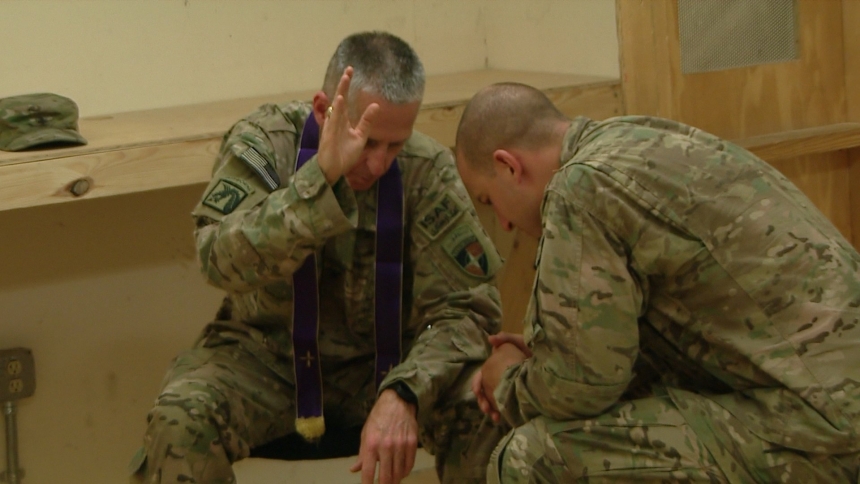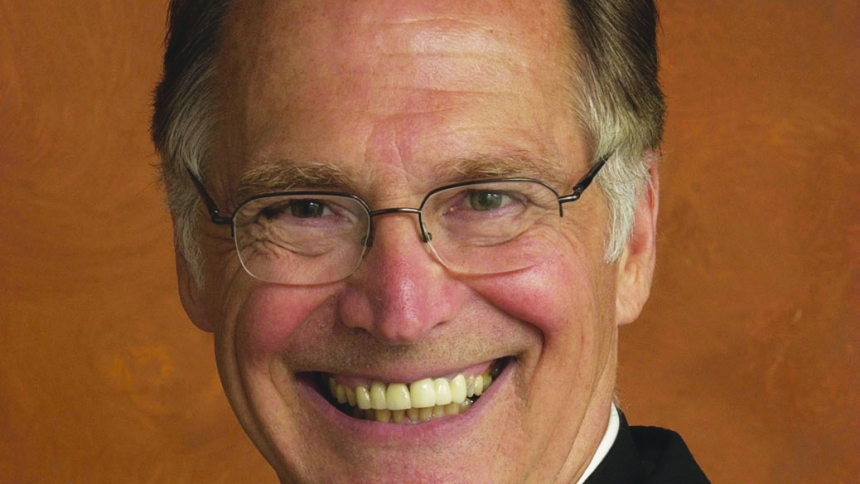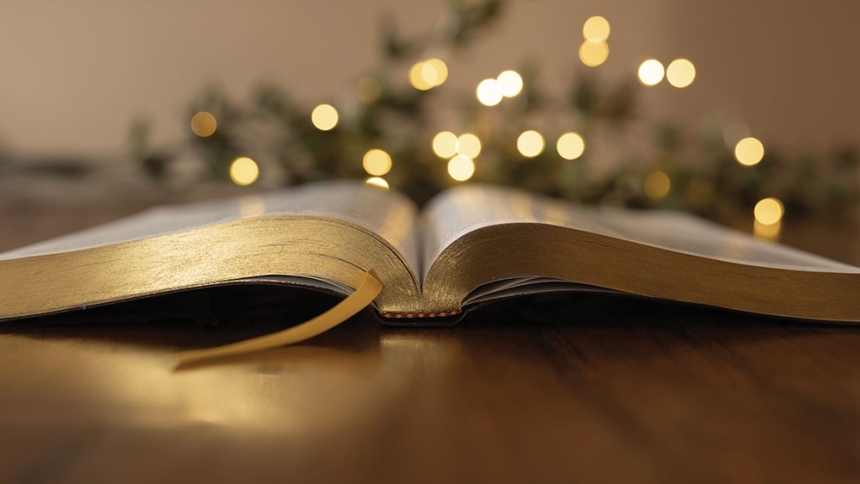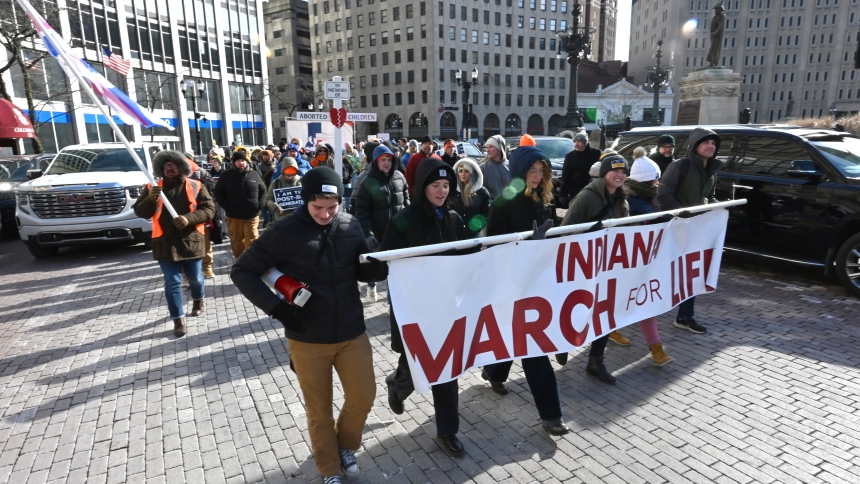
(OSV News) - It's a question often asked about Catholic chaplains serving in the U.S. Archdiocese for the Military Services: Are there enough of them for the estimated 250,000 Catholics - 25% percent of the U.S. armed forces - serving worldwide?
For Father Peter Pomposello, the answer, for the Army, is a frustrating no. A priest of the Archdiocese of New York, is the senior priest chaplain to paratroopers and their families at the Army's Fort Bragg (formerly Fort Liberty), home to the XVIII Airborne Corps in North Carolina.
"We need 350 (active-duty) to fulfill the mission," he told OSV News. "I'm one of less than 80 currently on active duty in the Army."
It's a sharp decline. The military archdiocese's web page has a statistic from five years ago: "As of 2020, 204 Roman Catholic priests were endorsed for active-duty military service." They are considered on loan from the archdiocese or diocese for which they were ordained.
Priests make up only about 8% of the 3,000 chaplains across all branches of the military, according to the archdiocese. Based in Washington, the archdiocese is responsible for pastoral care for some 1.8 million Catholics around the world. That amounts to 220 military installations in 29 countries.
Father Pomposello, 56, a graduate of St. Joseph's Seminary in Yonkers, New York, who holds the rank of major and has been a chaplain since 2014. As a priest in the Army, he has jumped out of airplanes in Alaska, been deployed to the Middle East to minister to soldiers in harm's way and had the joy of celebrating many Masses, weddings and baptisms for the soldiers and families of the U.S. Army.
A former chaplain recruiter for the Army, he said his recruiting efforts were "an eye-opener of how difficult it was to get a priest into the Army."
The main obstacle, he said, "comes down to the generosity of the bishops we're asking to let them go. It's a very big ask! It's torture! It's very hard."
He's found young men who "want to do it, but they fear asking their bishop."
At Fort Bragg, he's assisted by Father Mike Metz, who holds the rank of captain. One of the largest Army bases in the world, it has about 61,000 military personnel plus 14,000 civilian employees. Thinking of it as a parish, Father Pomposello estimates he has about 12,500 parishioners.
For Father Paul Hurley, the discussion about recruiting is not at all new.
Now pastor of St. Bonaventure Parish in Plymouth, Massachusetts, he was the 24th chief of chaplains of the U.S. Army (with the rank of major general), serving in the post from 2015 to until his retirement from the military in 2019.
"If you really look back on the picture, even at the greatest point in our history of military conflict - World War II, when the whole country was being mobilized to support the war, even at that time, there was a shortage of Catholic priests. We had 2,000. That was still not enough," Father Hurley told OSV News.
And "even then, it was still the same issue. Bishops felt compelled to serve the people who were at home in their diocese. We've always had a shortage."
According to a 2021 Rand Corp. survey, the proportion of both Catholics and Protestants among Army enlisted had declined steadily over the previous 15 years, while the expected proportion of those who have no religious affiliation (Nones) "will likely increase." The report recommended that the Army Office of the Chief of Chaplains "will need to monitor and potentially adjust the force mix of the U.S. Army Chaplain Corps."
The nature of Catholic worship means there's always an urgent need, Father Hurley said. "Catholics need priests. Their sacramental life is not like other denominations," which can hold services without clergy present. But for the faithful, "there is no other way to fulfill the Catholic requirements."
OSV News spoke with Father Pomposello and Father Hurley on the eve of the Army's 250th birthday on June 14 and, on July 29, the 250th anniversary of the establishment of the Army Chaplain Corps by the Continental Congress at the request of General George Washington, more than a year before the Declaration of Independence was signed.
"That was the first thing Washington did, was to bring in clergy," Father Hurley, 63, a graduate of West Point and St. John's Seminary in Brighton, Massachusetts, observed. "I don't think a lot of people realize how important the role of the chaplain is in a military organization. This mission is so important to the mission and the welfare of the people involved in combat."
Both chaplains were in parish ministry before their military service. But their most touching stories of unexpected grace come from the highly charged settings of their overseas deployments.
For Father Pomposello, this occurred during his posting at Fort Campbell, Kentucky, when, in Syria, a soldier in the 101st Airborne Division died in a car crash for which another soldier was responsible (the Army called this a "noncombat incident.") The driver was eventually court-martialed.
But while he was jailed, "I told my commander I'm going to keep seeing him in the jail. He doesn't have anybody," Father Pomposello recalled.
Another part of his duties included calling the family of the deceased soldier. He spoke to his father, whose response stunned him.
"The first thing the father told me was 'Hey, how's the other boy doing? And how are his parents doing? Are they OK?'"
"How humbling is that?" On top of that, the family of the soldier who caused the accident attended the funeral of the dead soldier. "That certainly changed me."
Father Pomposello also found that "there's a need for good ministry in Army prisons."
Father Hurley, a priest of the Boston Archdiocese, found his most emotional experience during the second Gulf War not long after the American occupation began in 2003 and his rejoining the chaplain corps after five years as a parish priest in Boston. It was near the Iraq-Syria border.
In Iraq, he was "basically an itinerant chaplain," he recalled, "going from base to base. These little forward operating bases." The usual method of transport was by helicopter, since these bases were many miles apart.
A truck convoy pulled up. "A soldier got out and asked, 'Are you a Catholic chaplain?' The base where they were headed was an hour away. It was pretty remote. I reluctantly said yes."
The base had no more than 50 soldiers. "I went, I said Mass and heard confessions. I did what I could do. They were so committed. They had a passion for that spiritual care, if you will."
And although Father Hurley was certain not all the soldiers were Catholics, "every single soldier on that little base came up to me to thank me. They were just so grateful. It was the presence of the chaplain - the presence of God."
He was in tears. "The expression of gratitude on these soldiers - it just blew me away."
Father Hurley found it "an affirmation. They may not know how to live their faith according to the tenets of their faith, but deep down, they know."
Caption: Father Paul K. Hurley, then-U.S. Army chaplain, is pictured in a 2014 photo giving a blessing for deployed U.S. military personnel in Afghanistan. (OSV News photo/courtesy Journey Films)



